Do raccoons eat cats? It’s doubtful, but that doesn’t mean that it doesn’t happen.
Raccoons are omnivorous and will eat almost anything as they are scavengers.
It is known that they will kill and eat smaller mammals, but they aren’t natural predators in that sense.
Like a lot of wild animals, they are opportunists.
They may view cats as prey if food is scarce or they are in competition with a cat for food or they feel threatened.
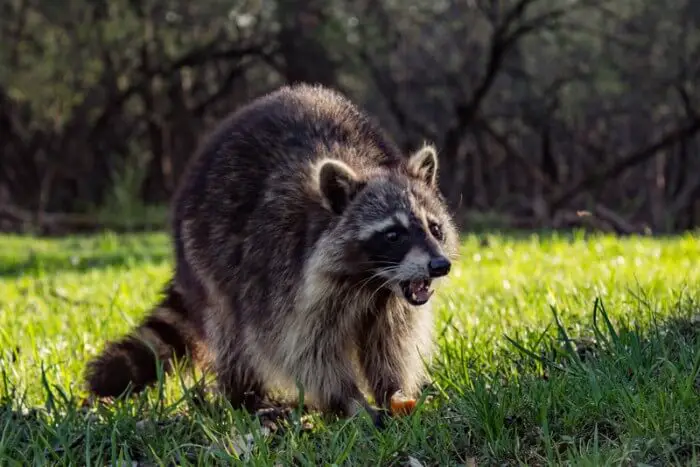
Any dead cat will just be viewed as another source of food.
Contents
What Should Cat Owners Do To Keep Cats Safe From Raccoons?
- Use locked trash cans or lock them away
- Don’t leave out pet food
- Keep your property clean
- Pick up any fallen fruit
- Use a raccoon deterrent
– Lifespan: in captivity up to 20 years, in the wild 1-3 years
– Length: 16-28 inches
– Weight: anything from 8-60 lbs.
– Diet: omnivorous
– Habitat: woodlands
Anecdotal Evidence For Raccoon Attacks On Cats
Although evidence can be found that raccoons do attack and eat cats, cats aren’t their prey.
Attacking cats isn’t natural to them.
The two species tend to tolerate or ignore each other unless there is an area of conflict between them.
Female raccoons will defend their young if a cat comes close to their den.
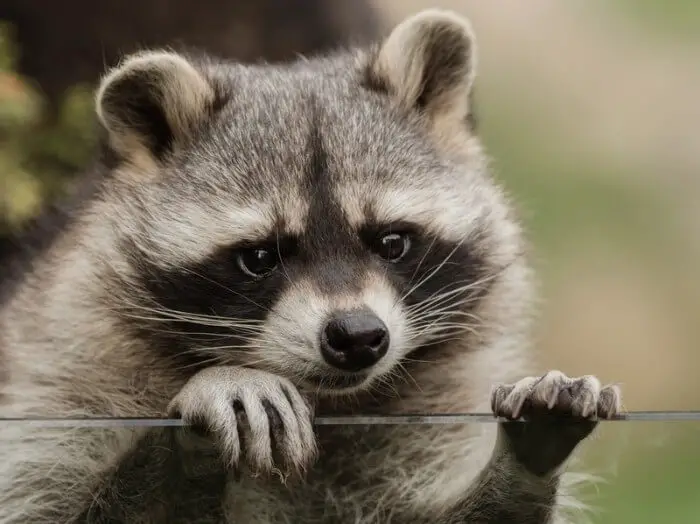
Over the years, raccoons have become town dwellers. Unlike other wild animals whose feeding and hunting grounds have been impinged on by urban sprawl, raccoons have packed their bags and deliberately moved in. It’s because of the easy pickings to be found around human habitations.
Raccoons are indiscriminate eaters; they will eat anything. Pet food is as good as any other. They are highly intelligent animals that can soon figure out how to get into or open something. That’s why they can be found in highly unlikely places right next to or living with humans.
Raccoons are natively found throughout most of North America –
havahart.com
Cats vs Raccoons
The question whether or not raccoons eat cats boils down to who would win a fight between the two. Like most conflicts between wild and domesticated creatures it usually comes down to size and temperament. Although destructive, raccoons aren’t particularly aggressive creatures. On the other hand, some cats are known to be.
As raccoons can grow to weigh up to 60lbs, their sheer bulk may deter a cat from starting a fight. Territorial battles over food sources would more than likely spark off a scrap. Cats have one advantage in that they can leapt. Raccoons can climb, but they don’t have the springing ability of a cat.
Raccons are clever beasts and in in certain directions their cunning surpasses that of the fox”.
Clinton Hart Merriam, Zoologist
Also Read: Do Snakes Eat Cats?
Cats at Risk From Raccoons
Of course, raccoons being the opportunists they are, old and sick cats might seem an easy meal, if nothing easier is for the taking. Being intelligent animals, raccoons understand that even old and slow cats come armed with sharp teeth and four sets of claws.
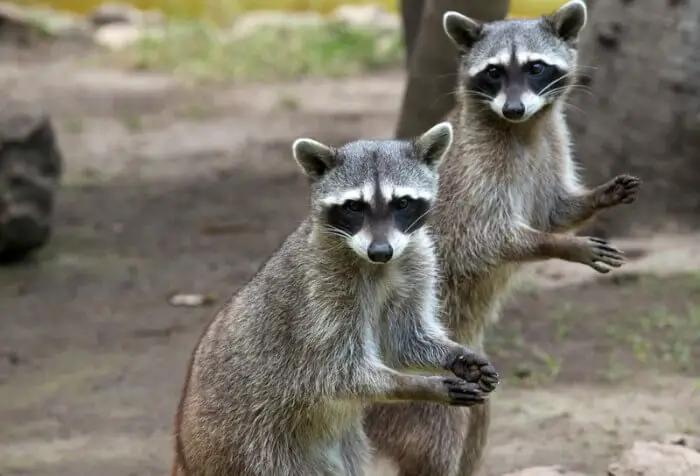
Kittens may be at risk, as they are small and weak. Kittens are also curious and playful and as yet, they don’t understand the dangers of bothering other animals. A far greater risk that cats have from raccoons are the diseases they are known to carry. A bite or a scratch from a raccoon could infect them with ringworm, leptospirosis, salmonella, or rabies.
Raccoons may well be one of the world’s most omnivorous animals”
Samuel I. Zeveoff, Weber State University
How to Keep Raccoons Away
- Install electrified fencing
- Use raccoon repellent
- Store pet food inside
- Seal off any entry holes to your house
- Install motion sensor lights
Due to its adaptability, the raccoon has been able to use urban areas as a habitat.
Wikipedia
Also Read: Are foxes a danger to cats?
Other Pets at Risk
Any small household pet that is considered prey animals by others could be at risk. Size or inability to flee may make them a target. Chickens, ducks, and other kinds of fowl can be in danger.
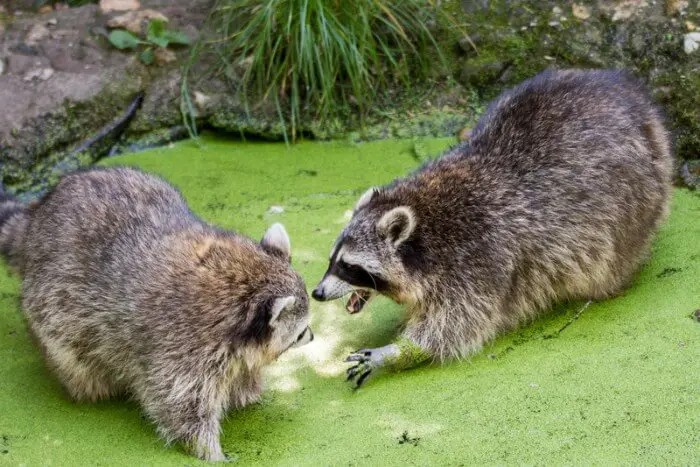
Fish and amphibians in ponds or tanks too. Raccoons are burglars, experts at breaking and entering, and are known to invade houses to make their dens.
Cages and tanks are just interesting obstacles to raccoons. Being inside isn’t really any protection.
Take-away
If there is raccoon activity in or around your property and you are worried that raccoons do eat cats, the best thing to do is trap them. Putting down poison isn’t really that effective as raccoons are probably intelligent enough to avoid it.
Also, it will endanger your cat and other pets. Once trapped, take them at least 10 miles away before releasing them. Information on traps and the baiting of them will be easily found from local wildlife organizations.
Sources:
As an Amazon Associate I may earn a small fee from qualifying purchases at no extra cost to you. This helps us run the site, so thanks for your support!

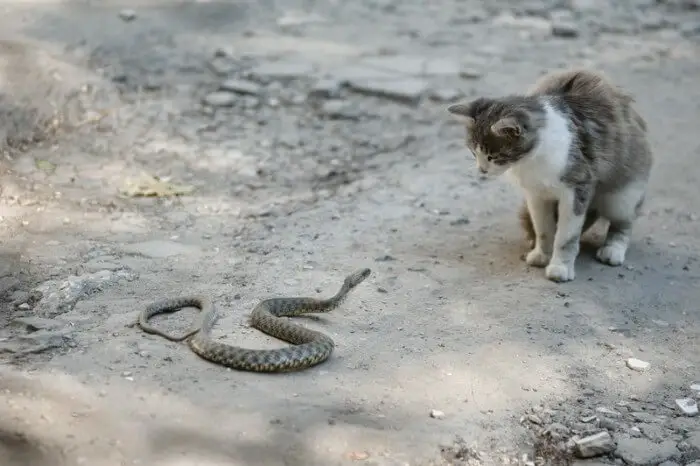
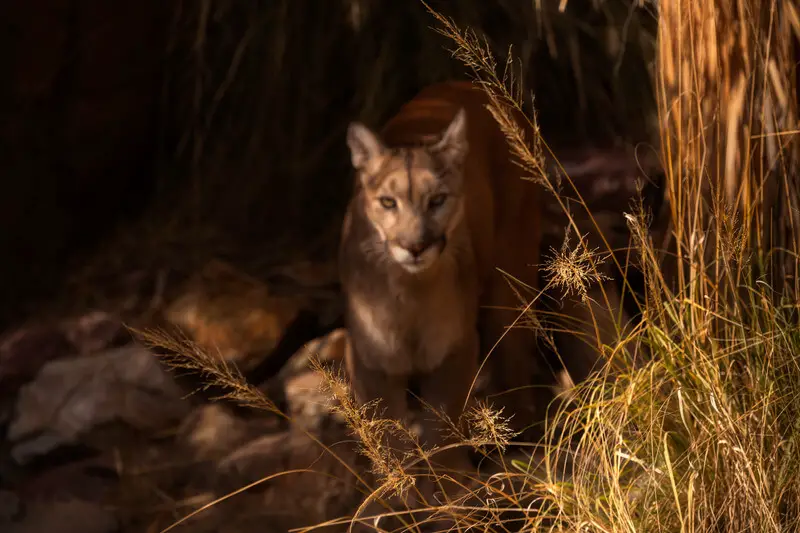
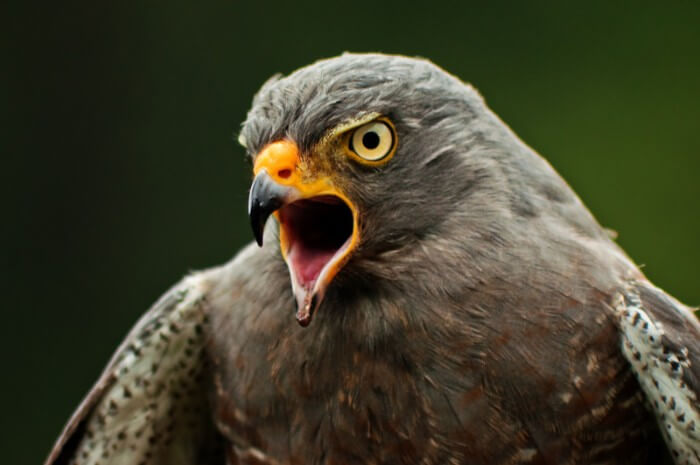
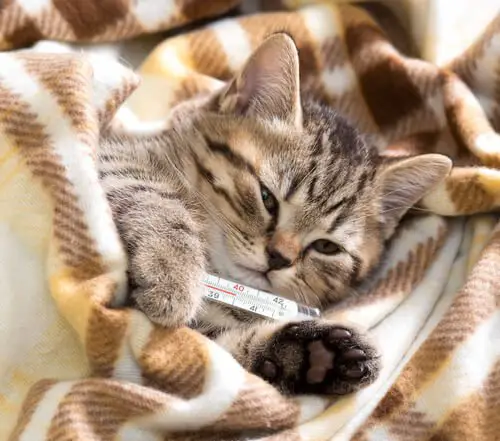
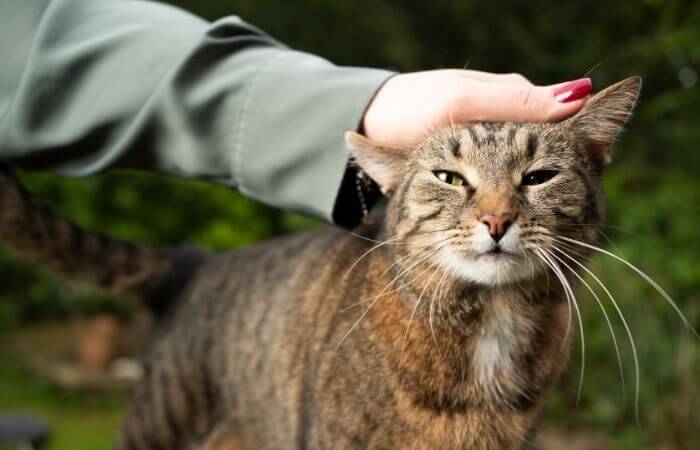

Leave a Comment